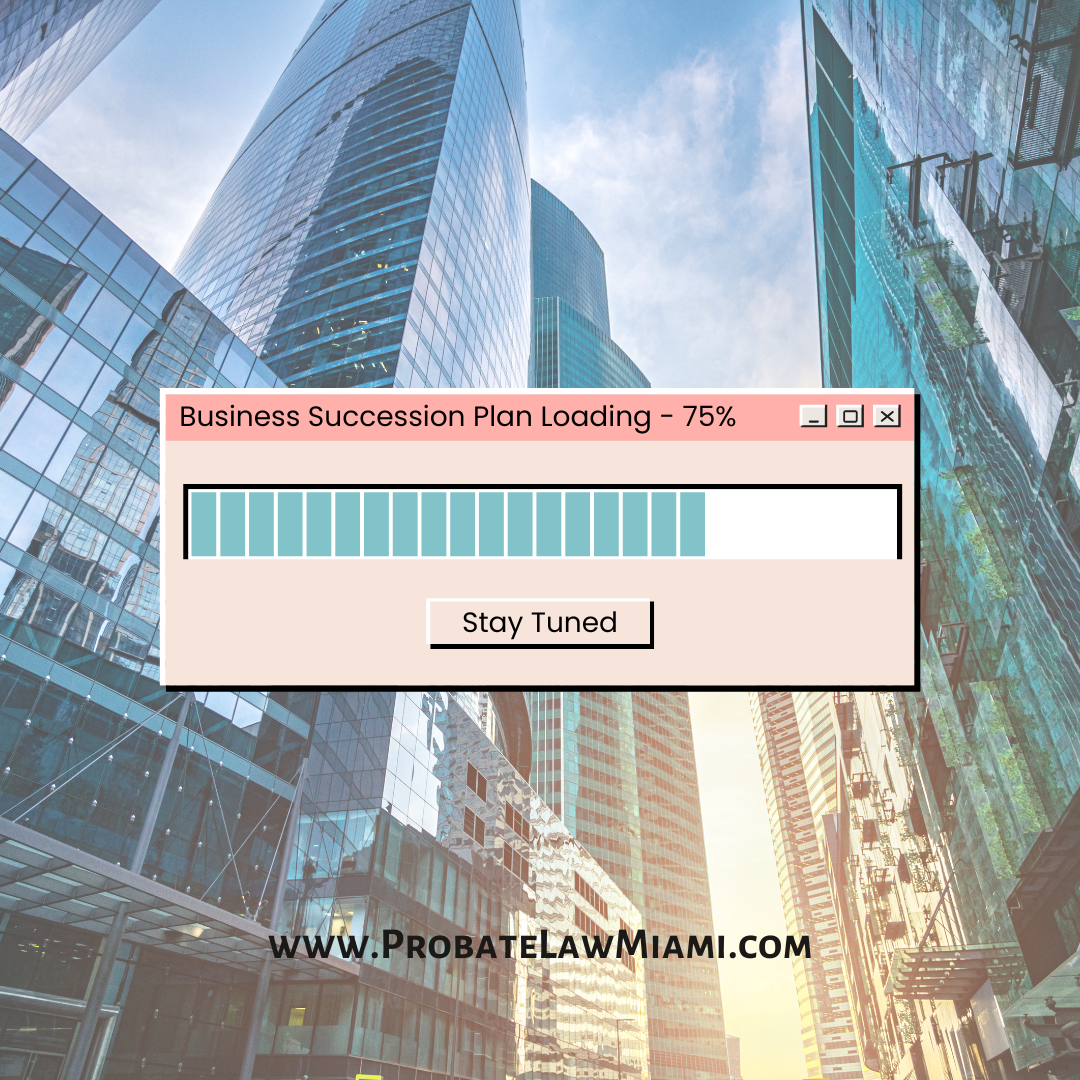I was recently interviewed by the South Florida Women’s Chamber of Commerce and we briefly touched upon planning for business owners. I’ve had many clients over the last 15 years of my practice that, among their personal assets, own 1 or more businesses. Many clients don’t realize that you ALSO have to plan for your business in order to ensure the proper succession…even if it’s to liquidate the assets owned by the business and distribute them to your heirs. So… Here are the BIGGEST estate planning mistakes I’ve personally seen entrepreneurs making:
- Not Having an Estate Plan at All
Many entrepreneurs are so focused on growing their business that they neglect personal planning. Without a will or trust, their estate—including the business—could fall into probate, leading to costly delays and uncertainty. Most probates take about a year. Those with businesses, can take even longer as the Personal Representative is scrambling to understand the day-to-day operations, the accounts receivables and payables, managing staff, taxes, liquidation, etc.
- Failing to Plan for Business Succession
Most entrepreneurs don’t create a clear succession plan for who will take over the business if they become incapacitated or die. Without this, the business may fail or end up in the wrong hands. You need to make sure you empower the right people to take your place, whether it’s temporary due to an illness or accident, or permanent, for obvious reasons.
- Mixing Personal and Business Assets
Commingling business and personal assets makes it difficult to protect either. It also complicates estate administration and opens the door to liability and tax issues. If we have to probate your business, the last thing we want to do is enter into litigation with a creditor who is trying to pierce the corporate veil. (Piercing the corporate veil means holding a business owner personally responsible for the company’s debts or legal problems—even though the company is supposed to be separate from the owner. Normally, a corporation or LLC protects its owners from being personally liable. But if the owner abuses that protection—like by mixing personal and business money, committing fraud, or using the company just as a shell—a court can “pierce the veil” and go after the owner’s personal assets, like their house or bank account.) In simple terms: If you treat your company like it’s not separate from you, the law might do the same.
- Ignoring Incapacity Planning
If an entrepreneur becomes incapacitated and hasn’t appointed a power of attorney or created a trust, business operations could stall while a court appoints a guardian or conservator. The way a business is owned (or how the owner wishes it to be owned) will let us know whether the business should be managed with a POA or if additional estate planning is needed to ensure that we don’t have to open up a guardianship case for your loved ones to be able to run your business.
- Overlooking Tax Implications
Entrepreneurs often underestimate estate and capital gains taxes—especially if their business has significantly appreciated in value. Proper planning (e.g., gifting strategies, irrevocable trusts, or family LLCs) can dramatically reduce tax exposure. Also, sit with your CPA who should be a tax planner. If you don’t have one, reach out. We are happy to connect you with some trusted colleagues.
- Not Protecting Intellectual Property (IP)
IP assets are one of those things that business owners overlook… probably because they are so intangible. If the business includes valuable IP (branding, trademarks, patents, proprietary systems), and there’s no clear ownership or transfer mechanism, it may be lost or misused after death or incapacity.
- Failing to Fund the Trust
Even if they have a trust, entrepreneurs often fail to transfer (or “fund”) business interests into it. That defeats the purpose of the trust and sends the business back through probate. Our recommendation relies heavily on the family’s particular dynamic and goals; there is no one right or wrong way to accomplish this. But something needs to be in place to ensure the company is passed down as automatically as possible (i.e., without court-intervention).
- No Buy-Sell Agreement
If the entrepreneur has partners, what happens to your half when one of the partners dies? A lack of a buy-sell agreement can lead to disputes or force the family to sell to outsiders, often at a loss. You or your loved ones can also be stuck running a business with a spouse that has no idea what he/she is doing or adult children that have a completely different vision than the now-deceased owner. Buy-sell agreements are typically created with some life insurance policies. We are also happy to connect you to trusted corporate transactional attorneys and life insurance agents.
- Outdated Plans
Businesses evolve, but estate plans often don’t. Major life events (new ventures, divorce, kids, exits, etc.) should prompt a review of the estate plan. Your plan 10 years ago may not accurately reflect the current state of your business or your current state of mind. When in doubt, always reach out (Hey! That rhymed!! Yes, I know I’m a nerd. It’s fine. I’ve come to terms with it.)
- Relying Only on Online Templates
Did I save the best for last? YES I DID. Anyone who has heard my seminars knows how MUCH I despise DIY-ers in terms of legal documents. Would you handle your own electrical work? How about structural engineering? NO, right?! Just because you can operate Microsoft Word / Legal Zoom / etc does not qualify you to engage in the practice of law. DIY plans may not account for unique business structures, tax strategy, or jurisdiction-specific nuances, potentially leaving big gaps in protection. You seek professionals for the big stuff… this is big stuff too.
Hopefully this list brings some enlightenment, or at least gets you asking yourself those important questions: “What happens if I can’t decide? Or when I die, what happens to the business, to my clients, to my family?”








